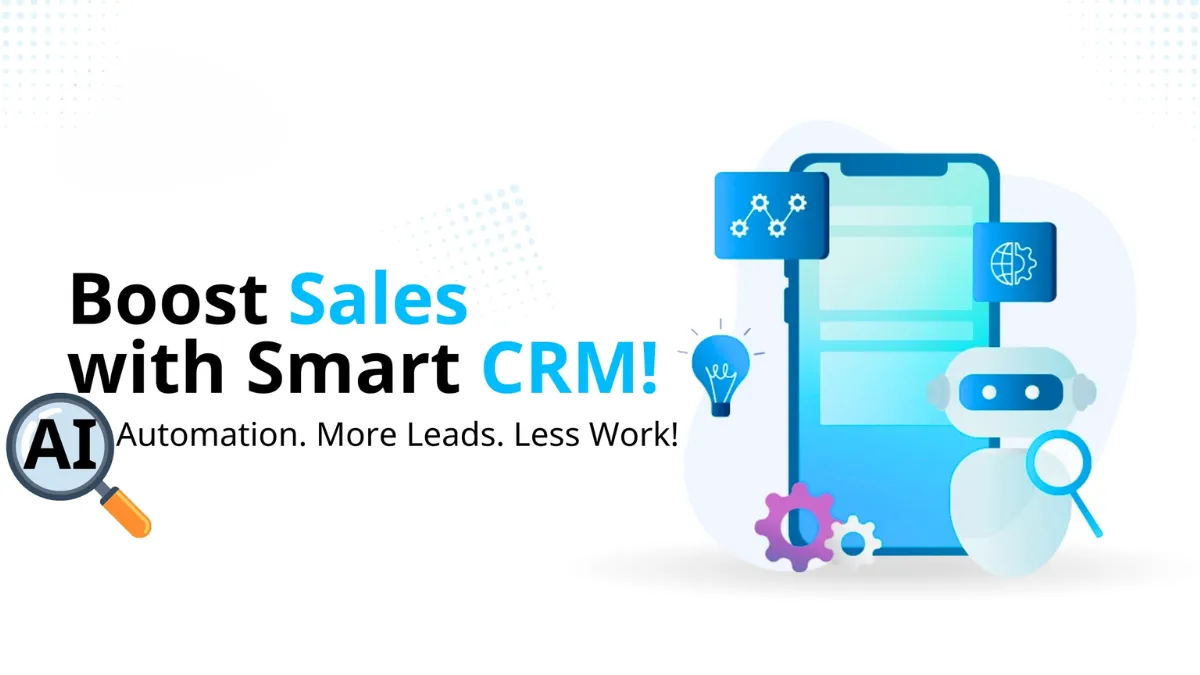In the ever-evolving world of business, building long-lasting customer relationships is not just an option—it’s a necessity. A smart Customer Relationship Management (CRM) strategy can be the game-changer that takes your sales performance from average to exceptional. Whether you’re a small business owner or part of a large enterprise, the right CRM approach can streamline your processes, improve communication, and most importantly, boost sales.
Let’s explore how a well-planned CRM strategy can become your sales team’s best friend.
What Is a CRM Strategy?
A CRM strategy is a company-wide plan designed to improve relationships with existing customers, convert prospects, and optimize customer retention. It typically involves using CRM software to organize customer data, automate tasks, analyze performance, and personalize interactions.
But it’s more than just a tool—it’s a mindset and a process that puts the customer at the center of your operations.
Why Sales Teams Need a Smart CRM Strategy
Here are the top reasons why a smart CRM strategy is essential for sales growth:
1. Centralized Customer Data
A CRM provides a 360-degree view of each customer—past purchases, preferences, complaints, and interactions. This helps sales reps make informed decisions and approach customers with personalized offers.
2. Lead Management
Smart CRM tools help qualify leads, assign them to the right reps, and nurture them through automated workflows—ensuring no opportunity falls through the cracks.
3. Sales Automation
CRM can automate repetitive tasks like sending follow-up emails, setting reminders, and logging calls. This allows your sales team to spend more time selling and less time on admin.
4. Sales Forecasting
With access to real-time analytics and reports, sales managers can make accurate forecasts, set realistic targets, and measure performance against KPIs.
5. Improved Collaboration
A shared CRM platform keeps marketing, sales, and customer support teams aligned. This ensures that every customer interaction is consistent, helpful, and timely.
How to Build a Smart CRM Strategy That Works
To make CRM work for your business, you need more than just software—you need a structured strategy. Here’s how:
1. Define Clear Objectives
Start by identifying what you want your CRM to achieve: higher conversions, better retention, faster response times, etc.
2. Know Your Customers
Use CRM to segment your customer base by demographics, buying behavior, and interaction history. Tailor your communication accordingly.
3. Choose the Right CRM Software
Look for features that align with your sales goals—automation, pipeline management, mobile access, AI insights, etc. Tools like HubSpot, Salesforce, Zoho, and Freshsales are great options.
4. Train Your Team
Even the best CRM system is useless without user adoption. Conduct regular training, offer support, and encourage your team to make CRM their daily hub.
5. Track and Refine
Use analytics to monitor your CRM’s performance. What’s working? What’s not? Keep refining your strategy for optimal results.
Real-World Benefits of a Smart CRM Strategy
- 20–30% increase in sales productivity through better lead tracking and automation.
- Improved customer satisfaction due to personalized service.
- Higher retention rates by proactively managing relationships.
- Faster sales cycles with automated workflows and real-time insights.
Companies like Amazon, Apple, and even startups like Freshworks owe a big part of their growth to smart CRM strategies.
CRM Trends to Watch in 2025
- AI-Powered CRM – Expect more predictive analytics and smarter lead scoring.
- Mobile CRM – More sales reps are working remotely and on the go.
- Conversational CRM – Chatbots and messaging integrations are key to real-time engagement.
- Integration with Social Media – CRM will become more customer-centric through social listening.
- Voice-Enabled CRM – Think of Alexa or Siri helping your sales reps update data hands-free.
FAQs About CRM and Sales
1. What does CRM stand for?
CRM stands for Customer Relationship Management. It refers to strategies and software used to manage interactions with customers and prospects.
2. Is CRM just for big companies?
No. CRM is beneficial for businesses of all sizes—from solopreneurs to multinational corporations.
3. How does CRM improve sales?
It provides deeper customer insights, automates tasks, helps track leads, and supports better communication—all of which lead to more effective selling.
4. Can CRM help with customer retention?
Absolutely. By tracking customer preferences and interactions, CRM helps personalize service and anticipate customer needs.
5. What’s the ROI on CRM systems?
Studies show that every $1 invested in CRM yields around $8.71 in ROI, making it a high-value tool.
6. What are the best CRM tools in 2025?
Top tools include Salesforce, HubSpot, Zoho CRM, Freshsales, and Pipedrive.
7. How long does it take to see results from CRM?
Most businesses begin to see improved efficiency and conversion rates within 3–6 months of implementation.
8. Should CRM be used only by the sales team?
No. Marketing, customer service, and support teams also benefit from shared CRM data.
9. What industries benefit most from CRM?
Retail, finance, healthcare, real estate, and e-commerce all gain significantly from CRM strategies.
10. Can AI improve CRM performance?
Yes. AI enhances CRM by predicting behaviors, automating tasks, and offering real-time insights.
Conclusion
A smart CRM strategy is not a luxury—it’s a necessity for modern businesses aiming to boost sales and retain loyal customers. When used effectively, CRM transforms raw data into revenue-generating relationships. By aligning your team, automating processes, and focusing on customer needs, you can turn every interaction into an opportunity for growth.
